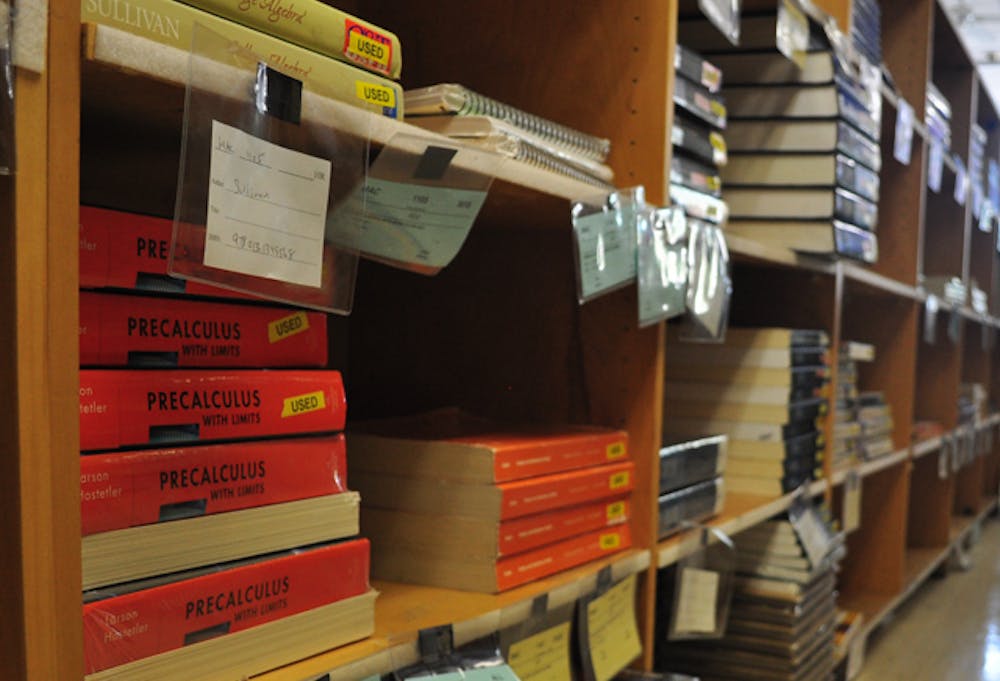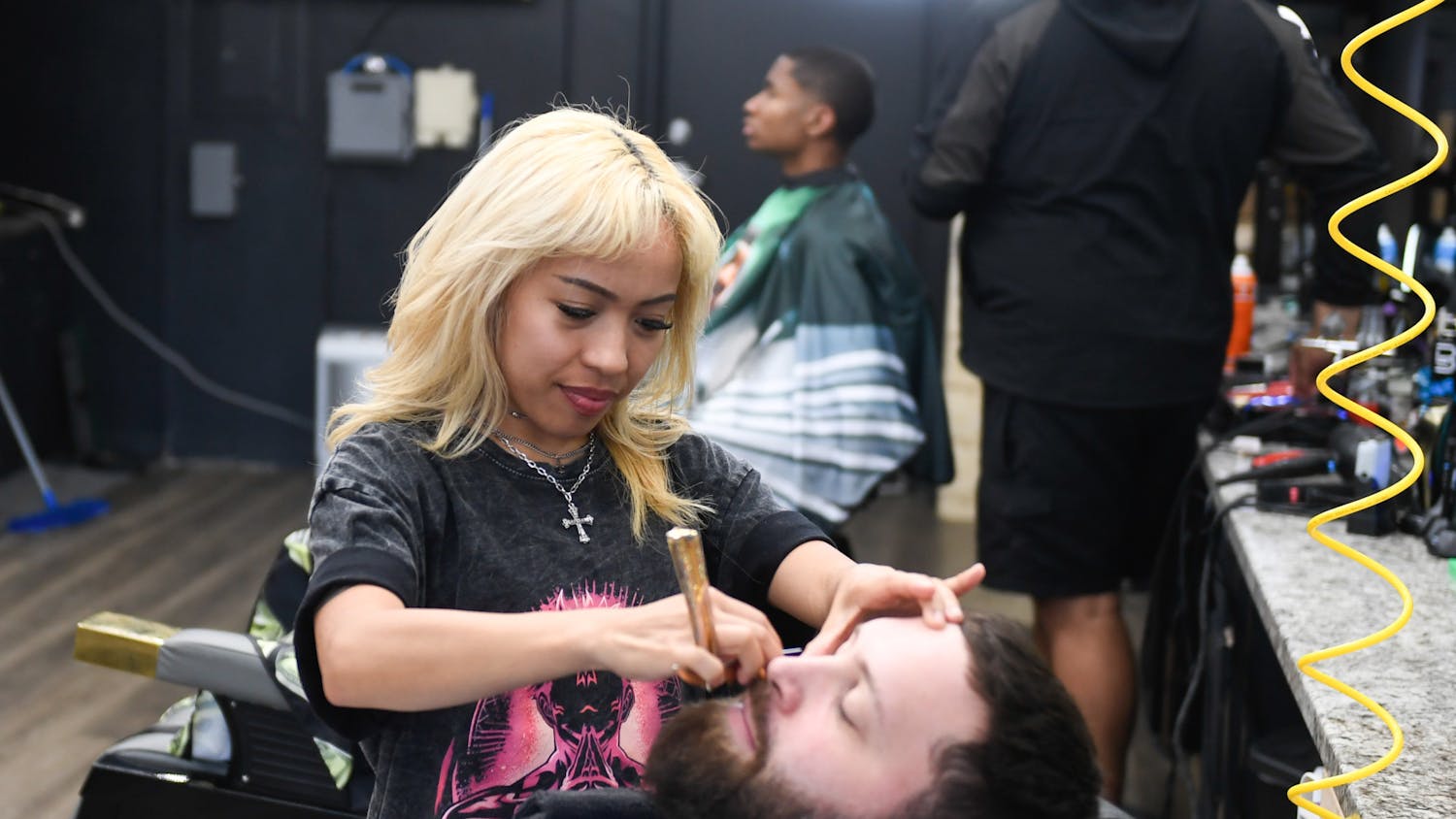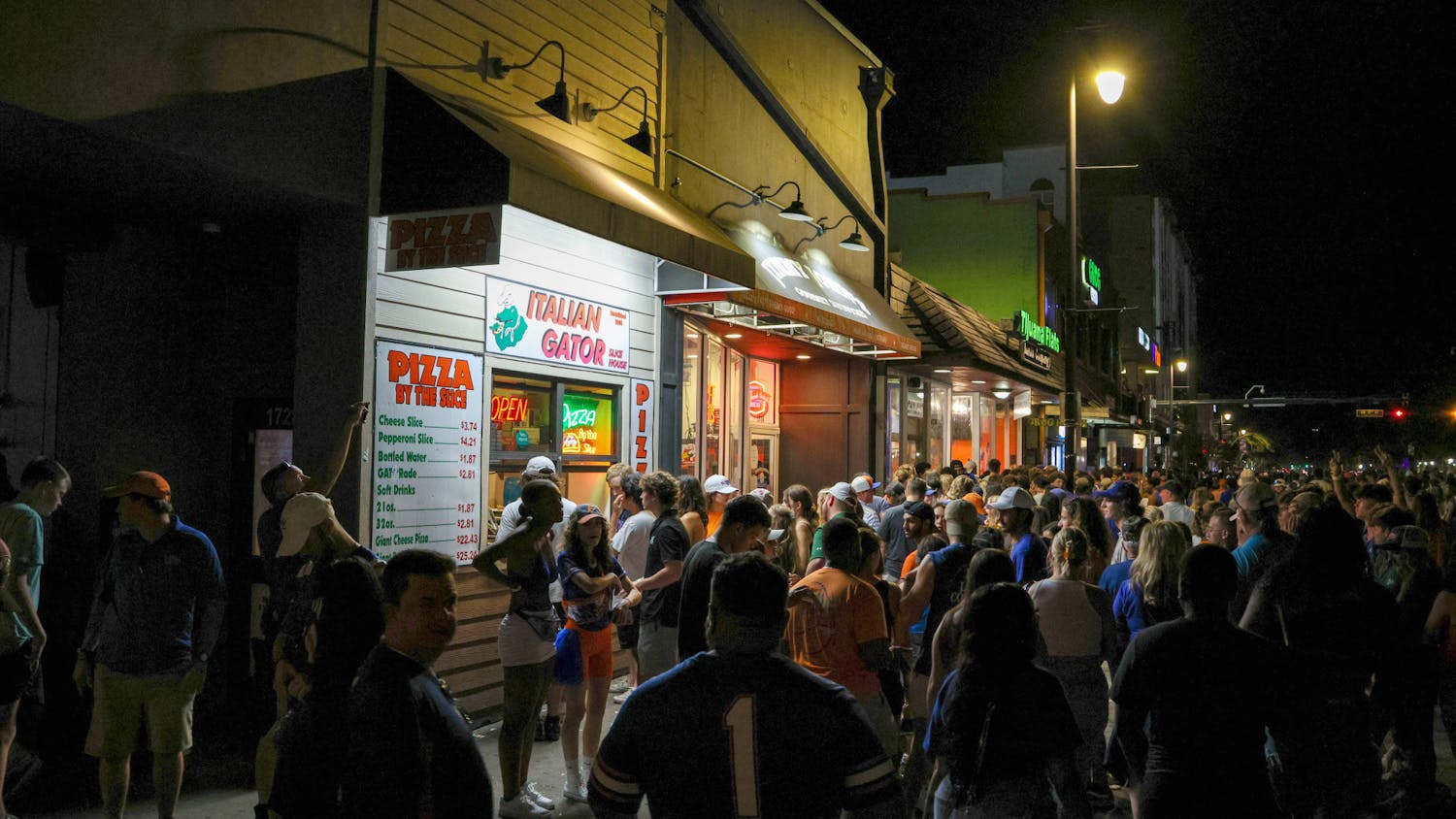With the promise of quick cash made in a summer, it’s easy to see the appeal of multi-level marketing and direct sales programs.
It’s even easier to see why those companies would search for recruits on college campuses full of unemployed, busy students.
One program, Southwestern Advantage, which sells textbooks, has been the subject of scrutiny by students. The company recruits at UF career fairs and at the Reitz Union, working closely with the UF Career Connections Center. Students say the program is misleading, predatory and unethical.
It’s banned from various college campuses including Harvard University for “irregular recruiting activities," University of Maryland after students complained that the program is misrepresented as a business opportunity rather than a sales job, and University of Idaho for recruiting in classrooms without university permission.
The program, pitched as a summer internship, follows a direct sales business approach, Amy Groom, direct sales leader at Southwestern Advantage, wrote in an email.
College students are sent to different states or countries, often responsible for their own transportation, where they stay with a host family. The company operates in all 50 states and over 20 different countries, according to Groom. They then work day-long shifts, often choosing to work over 10 hours, where they try to sell textbooks targeted to kindergarteners to high schoolers by going door-to-door, she said.
Due to COVID-19, the program has adapted by enforcing face covering, regular temperature checks and contactless payment.
There is no initial buy-in or selling quota for program members, Groom said. Students keep 40% of the retail price from their sales.
Still, according to the program’s “expectations” brochure, students are typically responsible for paying about $50 a week for housing and $10 to $20 for the space where weekly Sunday meetings are held by Southwestern Advantage leaders. Dealers must also travel to a training school prior to the program where students who have already been through the program will have to pay $125-150 lodging for the week.
Despite this, UF works closely with the company.
Southwestern Advantage is listed as a “career education partner” on the bottom of the Career Connections Center’s website, along with five other large companies including aerospace corporation Lockheed Martin and Big Four accounting firm PricewaterhouseCoopers.
This means they pay the school a certain amount of money each year, said Ja’Net Glover, senior director for career services at the UF Career Connections Center.
Southwestern Advantage is currently a “gold level” partner with the CCC. In exchange for $7,500 for the Spring 2020 through Fall 2020 semesters, the company is able to use the CCC’s facilities for information sessions to hold interviews among other privileges, Glover said. They also hold sessions on topics outside of their brand ,such as goal setting and communication skills.
A March 2019 Facebook post by the CCC shares that Southwestern Advantage presented the center with a certificate recognizing UF as a “2018 Worldwide Top 25 Campus.”
Students on Reddit, an online discussion forum, report having Southwestern Advantage representatives come into their lectures during class time in order to give their pitches and promote the program.
Southwestern Advantage can’t pay to speak to students in their classes, Glover said. Instead, students who work with the company or representatives privately arrange with professors to do so.
“I am always encouraging our students to ask questions and be specific about your interests so that you’re not misled and misguided,” Glover said.
CCC employees have been invited to Southwestern Advantage workshops and are able to see the materials they give students, Glover said.
“We have policies and procedures that protect the University of Florida students, and protect the university,” Glover said. “At any point, if our students have concerns or complaints about their experience with any employer, we take those very seriously.”
Southwestern Advantage maintains it is not a multi-level marketing program because recruiters do not earn a percentage of the proceeds from the people under them. Instead, they receive a bonus income from the company when they successfully recruit and train students who go through the program, Groom said.
Still, Southwestern Advantage, a single-level marketing company, operates very similarly to an MLM, said Richard Lutz, chair of the UF marketing department.
A multi-level marketing model relies on a direct sales approach, Lutz said. But with an MLM, employees need to recruit people and convince them to recruit more people, receiving a portion of the sales from everyone under them.
This differs from an illegal pyramid scheme, which follows a similar model, because there is an actual product being sold, he said.
“The appeal of these multi-level firms, whether they're legitimate or whether they're non legitimate pyramid schemes, is the promise of easy money,” Lutz said.
At least five separate posts on the UF subreddit “r/ufl” have been made in the past two years warning against students involving themselves with the company.
“Southwestern Advantage hasn’t given up and is now doing targeted spam over Instagram. Please don’t fall for this crap,” read one post that shares an image of the user being sent a message asking if they were interested in the program.
“It's very sketchy and they are known for having very shady business practices, some people call it a scam,” read another.
Students on Reddit also complain about similar programs that advertise on campus like Vector, a direct-sales company that sells cutlery under the brand Cutco. Vector is considered a single-level sales company by the Better Business Bureau.
Truth in Advertising, a non-profit organization dedicated to protecting consumers against deceptive marketing techniques, said college students are a prime target for direct sales companies.
A college student’s flexible schedule, social media skills, broad network of friends and family and desire for money for tuition make them strong candidates.
Bradley Gilrane, a 21-year-old UF English senior, said he was very close to being “suckered” into the company’s summer program after he found out about the company through a seminar he went to at Reitz.
“I was a Mormon for a short period of time. It’s a totally different business but has the same kind of cult feeling to it,” said Gilrane. “They're sending you away so you can't fight anything that you think is wrong. It's kind of designed so you don't have an easy way out.”
He said the company pitch sounded glamorous. Recruiters told him it’d become an opportunity to build his own business and find success. It was framed as though it was a cool internship opportunity, he said.
Gilrane was given worksheets and packets to fill out before he could start selling books. When he didn’t get around to it, his recruiter, another UF student, asked to meet with him and tried to persuade him to continue with the program. When Gilrane said he would consider doing it the following summer instead, his recruiter got upset and said that if Gilrane backed out he wouldn’t be allowed to reconsider.
“He was so angry,” Gilrane said.
Gilrane said he had seen online and heard from others that the company tells students they need to try harder if they don’t sell books or that they aren’t passionate about it. His recruiter made similar comments about work ethic and personal success.
The expectations brochure reinforces this idea.
“You and you alone are ultimately responsible for your success in the program – not your student leader, not your sales manager, not your roommates, not your sales locality or customers” the brochure reads.
“They don't want you to realize that it’s a scam,” Gilrane said. “They don't want kids coming back with horror stories about how they lost money.”
According to “The Behavioral Economics of Multilevel Marketing,” by Heidi Liu in the Hastings Business Law Journal, individuals are often persuaded into joining these businesses because they follow traditional beliefs about productivity and entrepreneurship.
“Consultants may be led to focus on unlikely benefits and to conform to notions of success that seem consistent with the “American dream” — even to their financial loss,” Liu wrote in the 2018 study.
Nevertheless, students continue to participate in the programs, and some even enjoy it.
Maria Sarralde, a 21-year-old UF business management senior, participated in the program for the past three summers and has made a combined $53,000.
Sarralde first found out about the program after she filled out a questionnaire in one of her classes. She said the company was transparent from the start.
Sarralde admits the program is hard work, saying she often worked 12 to 14 hours a day, but said it was ultimately worth it.
“I’ve seen a lot of both personal and professional growth,” she wrote in an email. “It was definitely a tough job that took hard work and dedication but worth every minute of it.”
But Gilrane still isn’t convinced.
“The whole thing just seems really nefarious from the outset, I don't think there is an honest bone in it,” Gilrane said. “I don't think that anyone associated with it is fooled by it because it's obvious what it is, it's just not obvious that it's extremely harmful.”

Nora O'Neill is a fourth-year journalism and philosophy student and the Enterprise Editor for The Alligator. She previously served as the Avenue Editor and the business and economics beat reporter. In her free time you can find her reading books with no plot and abusing her Chemex.






